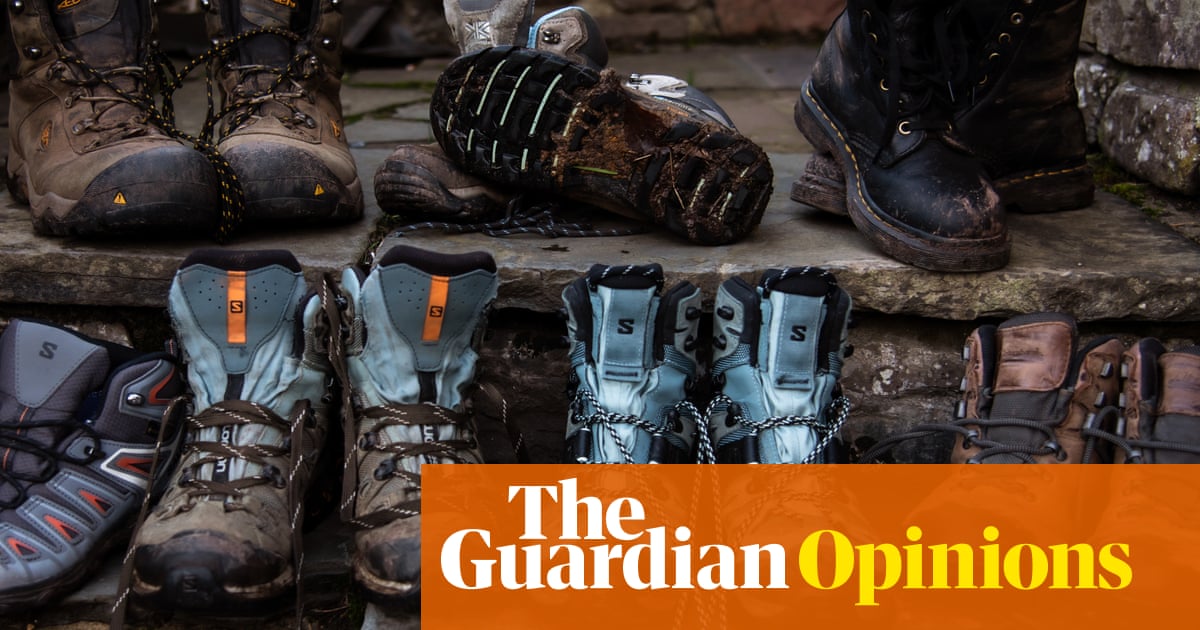I’ve never been in a band. But I have been to a youth hostel with four babies, which is sort of the same thing. Everywhere we turned there was singing, selfies, strangers coming up to us in the street and women getting their boobs out – it wasthe Small Faces, but with actual small faces.
My God, how I love youth hostels. In all their strange, intergenerational, shared washing-up sponges and boot-room glory, they are the best of us. You can keep your sponsored hotel stays and luxury apartments as far as I’m concerned. Give me a fluorescent-lit kitchen with five electric hobs and a roll of stickers to label your milk any day.
Sharing a single room designed for eight people with three breastfeeding mothers and four – count them –fourdribbling infants meant that our entire stay cost everyone just £40 a night, and I got to fall asleep to the soundtrack of polyphonic suckling. I had a sea view, a mattress on the floor; there was an en suite shower and a sink in which to wash out approximately 6kg of sand from my daughter’s bum cheeks.
But aside from the bunk beds and drying rooms and the donated surplus food left in the kitchen, what I really love about youth hostels is their pure, socially democratic, unlikely mishmash of guests. Where else do you find groups of teenagers feasting on bangers and mash sitting opposite a white-haired military veteran in a sports jacket and racing-green tie? Where else do you get to share your holiday with a family from the Philippines cooking pasta and sardines right beside a white guy in his 20s microwaving a sweet potato and doing calisthenics? Where else will you find a grand, wood-panelled living room in which an elderly couple in pale blue linen are FaceTiming their children as your friend Miranda changes a nappy on a coffee table?
The history of youth hostels in this country is far more radical than the board games and fried eggs might suggest. After the first world war and the economic uncertainty of the 1930s, the Youth Hostel Association (YHA) bought up a large number of stately houses and country estates that had previously been the playgrounds of wealthy aristocrats. In doing so, the YHA was able to – as it put it on its website – “give young working people an unprecedented opportunity tospend leisure time in fresh airand open countryside, on a scale only previously possible for the wealthy”. Suddenly working-class families, children from choked and dirty cities, pensioners, faith groups, students, and even four sleep-deprived women in snap-open bras and their babies were able to enjoy the benefits of nature, fresh air and grand architecture.
The four of us swam in the nearby sea and, as some of the country’s most landlocked women, even rejoiced in dipping our inland infants’ toes in the water (pray for the Dorset sewage level). We ate chips on the pier, dodged gulls and woke in the morning to the sight of cliffs rather than our usual curtains.
What’s more, the size of those private rooms, with their bunk beds and plentiful bathrooms, means you can avoid that great collective washout: the family holiday. I love my husband and my blood relatives, but I had such a fun time being able to go away with three other women in the same circumstances and life stage as me; to happily share the logistics and labour of childcare and cooking; to have other people around when I wanted to shower or sneak out to the shop; to enjoy constant company without the very familiarity that leads to most family mealtimes being an extended conversation about either Minecraft or the price of buses. We chatted to other guests about their own first forays into youth hostelling with small children, and I was politely asked to budge my prostrate daughter across the floor a little so others could access the freezer.
As Britain’s busiest holiday time approaches and my Instagram feed fills up with media millennials touting their sponsored stays in three-figure hotels and live reels in ball and claw baths, you’ll instead find me stomping through fields to a former mansion.
Nell Frizzell is a journalist and author
